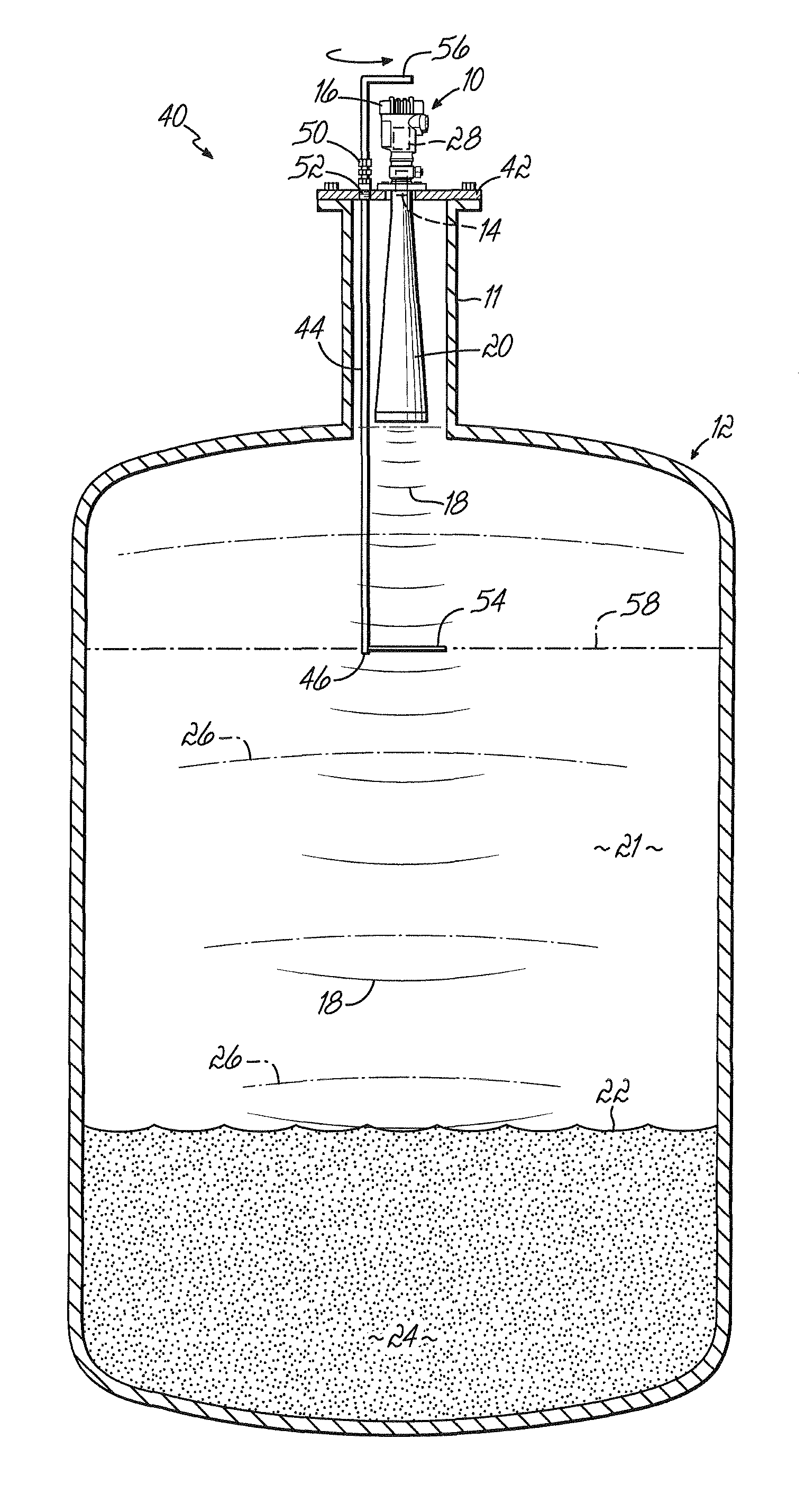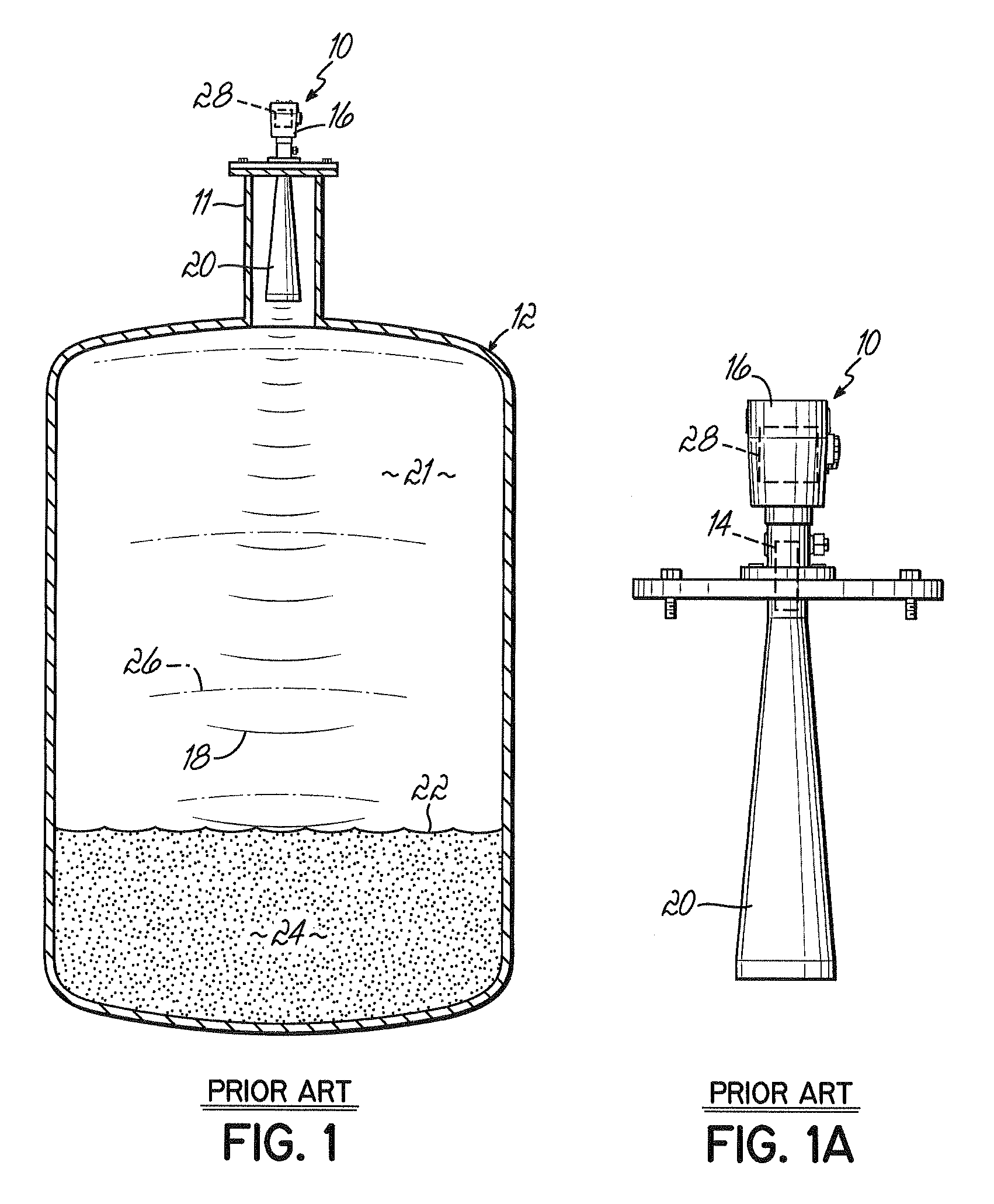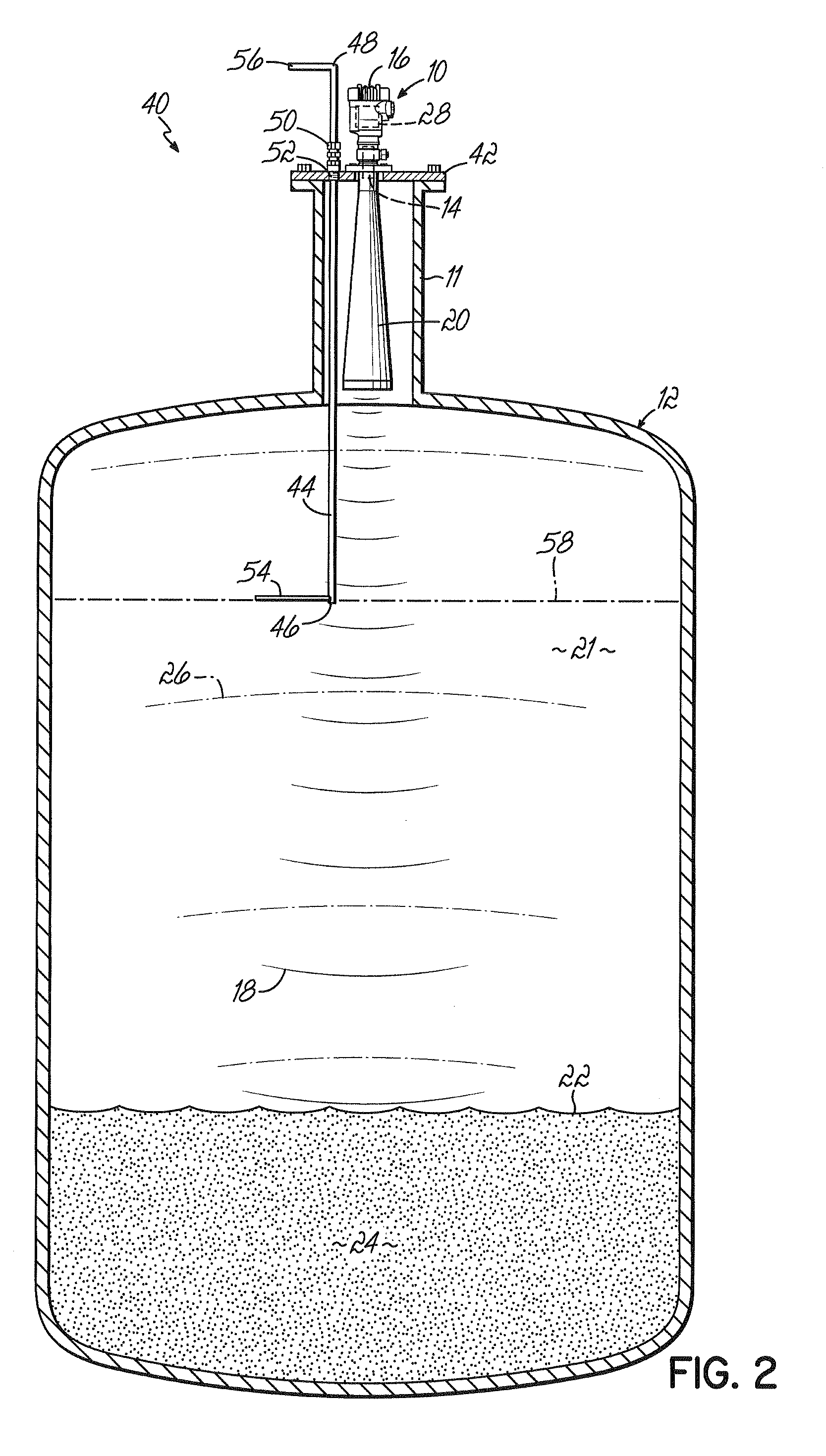Level gauge with positive level verifier
a level verifier and level gauge technology, applied in the field of level gauge systems, can solve the problems of software manipulation that is unacceptable to most safety integrated system checks, both methods have drawbacks, and cannot ensure the system's function properly
- Summary
- Abstract
- Description
- Claims
- Application Information
AI Technical Summary
Benefits of technology
Problems solved by technology
Method used
Image
Examples
first embodiment
[0018]With reference to FIG. 2, a level verification system 40 is illustrated. The level verification system comprises the radar level gauge 10, a mount plate 42, and a moveable arm 44 having a distal end 46 and a proximal end 48. The movable arm passes through a coupling 50 located in an aperture 52 of the mount plate. A reflective target piece 54 is at the distal end and an indicator 56 at the proximal end. The movable arm may be rotated within the coupling by grabbing the indicator piece, which is strong enough to be a handle. In other embodiments the indicator may be a system other than a handle, such as a dial, or an electronic readout. In some embodiments the movable arm may be extended or retracted in the coupling, moving the target piece closer to or further from the radar level gauge 10. In still other embodiments the movable arm may not be an arm at all, but may be any mechanical or other linkage that can move the target piece between at least two desired positions. The co...
second embodiment
[0026]FIG. 4 illustrates a system 40 with a shortened arm. The target is still in a spacious tank area and able to be sized as large as needed. Typically, because it is closer to the radar level gauge, the target of FIG. 4 would be smaller than a target of FIG. 3, for a given material and safety limit. Or it can be changed in other ways to produce the same signal as a target positioned at the safety limit 58 as in FIG. 3.
third embodiment
[0027]A third embodiment is illustrated in FIGS. 5, 6A-6C and 8. The moving arm is shortened so the target piece rests inside the nozzle. The target has an outside arc edge 60 and an inside arc edge 62 that allow the target to fit in an annulus area 64 defined by the wave guide 20 and inside wall 66 of the nozzle when the target is in its stowed position as shown in FIG. 6A. An advantage of the size and shape shown in FIG. 6A is that the target may be pulled further up towards the mount plate as indicated by arrows 67. This allows out-of-the-way storage, with additional protection as compared to below (FIG. 5) the wave guide. However, if the pulling-up is not desired, the target may be larger and not have a uniform inside arc edge 62 as long as it does not interfere with the microwaves in an amount that interferes with the clear identification of material levels when in the stowed position. For any target, the moveable arm 44 may be used to move the target further away from the rada...
PUM
 Login to View More
Login to View More Abstract
Description
Claims
Application Information
 Login to View More
Login to View More - R&D
- Intellectual Property
- Life Sciences
- Materials
- Tech Scout
- Unparalleled Data Quality
- Higher Quality Content
- 60% Fewer Hallucinations
Browse by: Latest US Patents, China's latest patents, Technical Efficacy Thesaurus, Application Domain, Technology Topic, Popular Technical Reports.
© 2025 PatSnap. All rights reserved.Legal|Privacy policy|Modern Slavery Act Transparency Statement|Sitemap|About US| Contact US: help@patsnap.com



